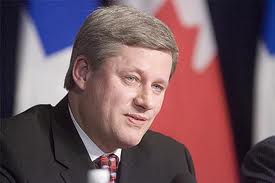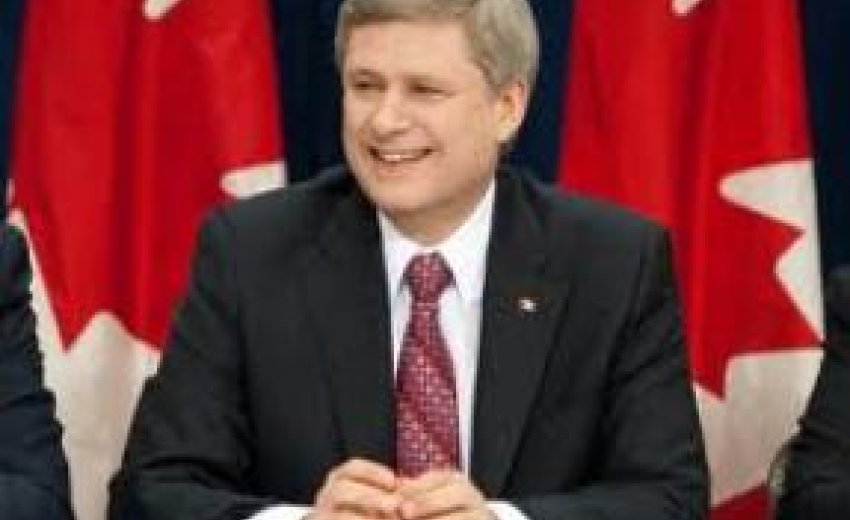 November 15, 2012: During a visit to India, Canadian Prime Minister Stephen Harper was asked what his government was doing to stop anti-India rhetoric voiced by Canadian Sikhs. Certain Sikhs desire a separate Sikh state, Khalistan, in the Punjab region of South Asia. The Globe and Mail reported that Harper responded by emphasizing Canada's support for a unified India, he stressed that extremism and violence would not be tolerated in Canada, and went on to affirm that the freedom of speech of Sikhs who legally protest or promote separatism must be maintained. While there is a sizable Sikh population in Canada, religion and nationhood are intertwined in Canada so much so that when an Indian and a Canadian speak of religious diversity, separatism, and the special status of minority groups they are very much talking about the same things in vastly different ways.
November 15, 2012: During a visit to India, Canadian Prime Minister Stephen Harper was asked what his government was doing to stop anti-India rhetoric voiced by Canadian Sikhs. Certain Sikhs desire a separate Sikh state, Khalistan, in the Punjab region of South Asia. The Globe and Mail reported that Harper responded by emphasizing Canada's support for a unified India, he stressed that extremism and violence would not be tolerated in Canada, and went on to affirm that the freedom of speech of Sikhs who legally protest or promote separatism must be maintained. While there is a sizable Sikh population in Canada, religion and nationhood are intertwined in Canada so much so that when an Indian and a Canadian speak of religious diversity, separatism, and the special status of minority groups they are very much talking about the same things in vastly different ways.
In Canada the official government policy to address issues of cultural diversity is multiculturalism. This policy has had a particular impact on discussions and relations with Quebec, which has made a concerted effort to maintain its distinct and unique cultural heritage. At times, Quebec actively sought to secede from Canada in order to form a new state. Critics of multiculturalism have claimed it is a means of dismissing Quebec's nationalist and separatist sentiments. Why should Quebec separate from Canada when the very nation itself is composed of a multitude of cultures, a plethora of peoples, and a variety of identities?
This is tied to Canada's wider strategy for managing religious diversity. Up until the 1960s, when the concept of multiculturalism was first introduced to the Parliament of Canada, the division of French and English Canada was also propounded by and large along religious lines: Protestant English and Catholic French. While Quebec had previously been dedicated to their Catholic heritage as a means of promoting a unique identity to the federal government and the rest of Canada, the 1960s produced the Quiet Revolution in which Quebec went through a rigorous secularization process of its government and societal makeup. As a result, the claim to uniqueness and independence was secularized as well. Quebec's goal became to protect its culture, its language, and its identity as a separate nation instead of simply propagating a religious division between Catholicism and Protestantism. But whether Quebec's claim to being a distinct society was based on Catholicism or culture in general, either could fit into the broader Canadian multiculturalism policy. In reaction to being regarded as one culture among many, Quebec has taken an active role in the political system of Canada to promote its special status as a province and/or to develop a separatist agenda.
India too, is no stranger to religious diversity causing divisions in its country. The country split into two—India and Pakistan—in 1947 as a solution to violent relations between Hindus and Muslims. Furthermore, the threat of religious violence has been a constant despite India's attempts to address religious diversity within its borders. This provides context as to why when visiting Anandpur Sahib, a holy city to Sikhs, Harper was asked to clarify his stance on Sikh separatist movements. The National Post records Harper having declared, "Canada is a very strong supporter of a united India." But went on to say that religious violence "obviously cannot be confused with peoples' right in Canada to advocate a political position." The balancing act of distinguishing between different kinds of claims for separatism and paying respects to religious diversity demonstrates Harper's distinctly Canadian approach to these issues.
Harper's speech in India was made to an Indian audience, but it was also for Canadians back home. Religious extremism exists within Canada's borders, but Harper is diplomatic when it comes to separatism. In Canada's parliament there is a constant voice for separation from the unity of Canada—the Bloq Quebecois is a standing federal party which actively seeks political leverage for more autonomy for the province of Quebec. Harper cannot but address the legality and legitimacy of separatist claims. As a result of the political situation with Quebec, and the current efforts to increase trade with India, Harper found himself in a difficult position. He had to keep in mind those interested in separatism: Québécois, the Sikhs whose vote Harper and his party have actively sought, as well as the Indians with whom Harper is vying for greater trade relations.
-------------------------------
References
Steven Chase and Kim Mackrael, "On Sikh separatism, Harper in India defends freedom of expression," The Globe and Mail, November 8, 2012.
Mark Kennedy, "Harper says he won't interfere with rights of Canadian Sikh separatists – unless they turn violent," The National Post, November 8, 2012.
Jonathan Napier is a PhD student at the University of Calgary. He is researching the manner in which religions are active in the public sphere in Canada.
